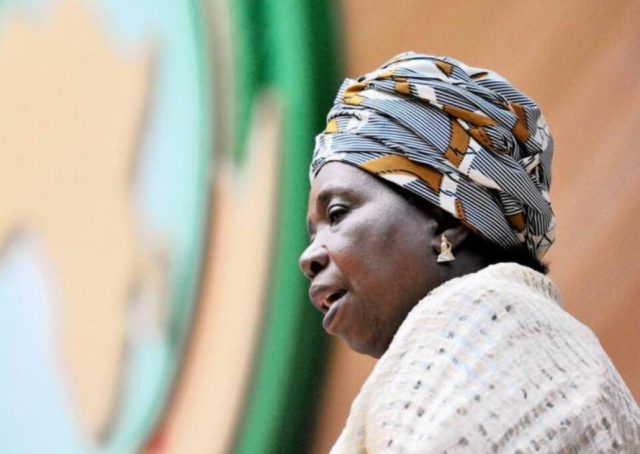The government’s decision to ban the sale of tobacco has violated the rights of consumers, Batsa said.
THE GOVERNMENT’S decision to ban the sale of tobacco in the country violated the rights of consumers, British American Tobacco South Africa (Batsa) argued in the Western Cape High Court on Wednesday.
Batsa’s lawyer, Alfred Cockrell, said in court: “The minister (Co-operative Governance and Traditional Affairs Minister Nkosazana Dlamini Zuma) has wiped out large segments of the supply chain in the tobacco industry.
“The medical case presented by the minister is largely smoke and mirrors and what she says torpedoes her case. The consumers’ rights have been violated – including the right to dignity, privacy and to bodily and psychological integrity.”
Cockrell said Dlamini Zuma in her responding papers to Batsa claimed the ban was motivated by a number of ICU beds that could be freed up should tobacco be banned.
Dlamini Zuma said if only 1% of the eight million smokers in the country were to contract Covid-19, it would mean that 80 000 smokers would be infected countrywide. She said that if a further 5% needed ICU, this would translate into 4 000 smokers needing ICU beds and ventilators.
Batsa said its application was different to the Fair-trade Independent Tobacco Association (Fita). Cockrell said Fita’s case was a matter of administrative law challenge and while there were overlaps with their case, it didn’t challenge the constitutionality of the tobacco ban.
“The minister has drawn a red line through the Tobacco Products Control Act and the minister, as a delegate of Parliament, does not have the competence to draw that red line. The ban has caused harm in the supply chain,” Cockrell said.
He said the ban had opened the floodgates for the illicit sale of tobacco which had cost the industry millions.
“Tobacco producers say they stand to lose their entire businesses with investments worth between R11 million and R15m because their markets are now limited.
“Batsa is not buying processed tobacco because they are prohibited from selling to consumers.
“How can it be reasonable and justifiable for a minister to deprive the fiscus of R38m a day in order to stop 10 to 15% of people from smoking?” Cockrell said.
The State’s legal representative, Andrew Breitenbach, told the court there’s a real risk that people who smoke will require medical intervention if there’s a significant peak in Covid-19.
“We don’t know where the pandemic is going, we have the fifth highest infection rate in the world. This is not a gentle hill, it’s a hill which represents a steep mountain. The infection rates have increased daily and it differs from one part of the country to another. This ban is not forever and the minister has taken steps to lift the ban gradually,” Breitenbach said.
The case continues on Thursday in the Western Cape High Court.








